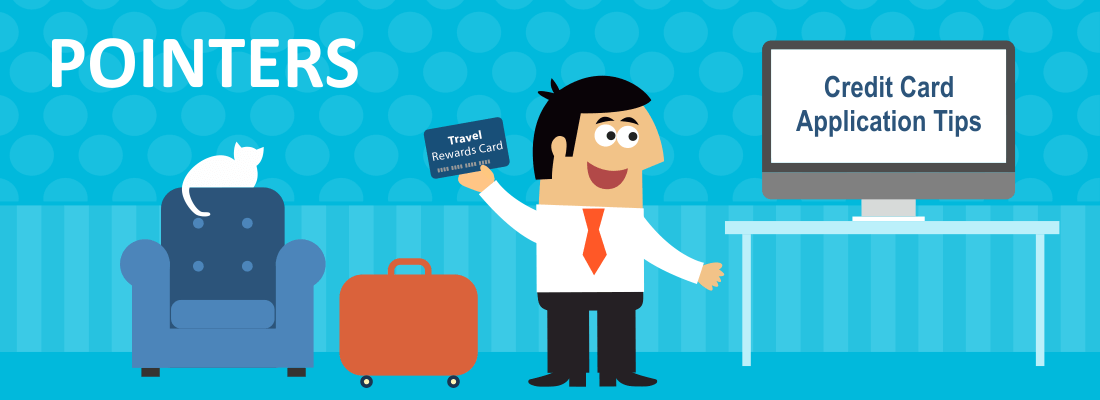
There are so many travel rewards credit cards out there, choosing can be a dizzying process. Features including sign-up bonuses and other perks that can often make many cards sound perfect.
Beyond the bonuses and perks, though, lies a minefield of caveats. These 10 tips can help you come out on the other end with the card of your dreams.
1. Match Your Application To Your FICO Score
Some travel credit cards are only available to those with an excellent (720 or above) credit score. Others are more suited for those with a good (640 to 719) score. If your credit score falls below 640, the road to approval is much harder but still possible.
You can get your credit scores once a year from each of the three credit reporting bureaus. Many credit card issuers also provide your FICO score on your statement. Knowing your score will help you apply based on the likelihood you will be approved. For more see: What Credit Score Do You Need To Apply For Rewards Cards?
2. Consider Your Travel Habits
Travel rewards credit cards come in 4 basic flavors each designed to align with a specific travel habit. If you are a frequent flyer, an airline-branded card might be your best bet. If you fly less frequently, a
If you mostly drive when you travel, a hotel branded card may work best. Finally, for some a cash-back card is the way to go. This type of card offers the most flexibility of all and is a great choice for short flights.
3. Weigh Points Versus Miles
In considering a card based on travel habits you may also want to take into account the advantages and disadvantages of both points and miles.
Typically cards that offer miles are branded with an airline. You will earn miles with purchases and with flights – something that could rack up a lot of miles in a short amount of time if you fly a lot. These cards often come with perks such as free baggage, companion passes, lounge access and so forth.
On the negative side, you are limited to a specific airline and its partners. And your miles may lose value if the airline changes its rewards structure.
On the other hand, points are locked into a specific credit card issuer. You cash in your points by booking through that issuer or redeeming them for a travel purchase. Points often transfer to miles at a 1:1 ratio or better. You have more airline choices with points including the option to shop elsewhere if your favorite airline devalues its miles.
You won’t get those airline perks like free checked baggage, which can amount to a big bonus at $25 per checked bag.
4. Don’t Stop At One Card
If your credit score supports it, you can leverage your rewards by having more than one card. If your travel habits don’t fit neatly into one of the categories outlined above, consider a card that caters to more than one category.
This could be in the form of an airline branded card for flights, a hotel branded card for free nights and an annual fee card such as American Express Platinum for perks like that card’s $200 a year in airline credits, lounge access, faster trips through customs and instant Starwood Gold status.
5. Look For The Best Sign-Up Bonuses
When you apply for a new card it always pays to look for the highest sign-up bonus first.
Then check two additional factors – annual fees and spending minimum. Go for a low annual fee. Many cards waive the fee the first year but if you keep the card the fee kicks in later. Make sure the bonus isn’t swallowed up by the fee if you keep the card.
The spending minimum is the amount you have to spend before the bonus takes place. The lower the better.
6. Not All Fees Are Bad
Most travel rewards cards come with annual fees, but many issuers waive the fee the first year. Factor in the fee in to your calculations when considering sign-up bonuses and so forth. If the annual fee wipes out your savings, the card may not be worth applying for.
7. Check Out Perks
Airline branded cards offer the most perks including free checked bags, lounge access, priority boarding, early check-in and a variety of other amenities. Not all airlines offer the same perks so it’s important to check carefully before applying for a card.
While airline branded cards typically offer the most and best perks, they’re not the only ones. Hotel branded cards sometimes offer attractive perks including room upgrades, concierge service, manager receptions and more.
8. Shop At Online Portals
Many cards include online shopping portals that provide extra rewards points when you make purchases there.
Check the website of the card issuer, airline or hotel brand for information and instructions on how to use the portal for extra rewards.

Dining programs are another source of extra points or rewards when linked to a specific credit card.
9. Use Cash Back Option if Needed
Although cash back options often come in at a fraction of the amount you would get with normal rewards and benefits, they can still be beneficial.
Look for cards with a cash back option when you apply. This option can be useful during periods when you are not able to travel and might end up losing the points anyway.


